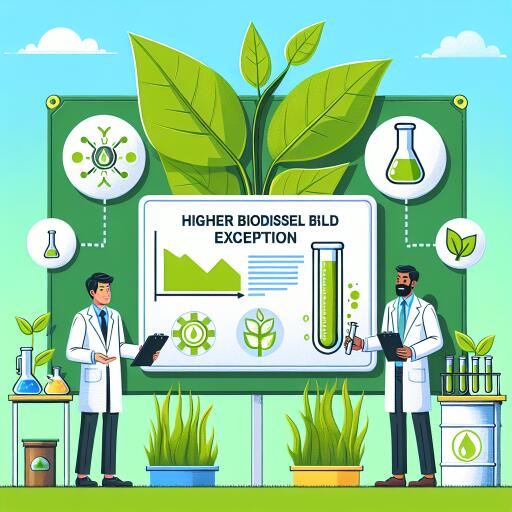
Illinois Embarks on a Bold Journey Toward Biodiesel Expansion
As of April 1, Illinois set a new standard in the quest for greener fuels with the initiation of a groundbreaking phased approach to biodiesel blend exemptions, marking a pivotal shift towards sustainable energy usage in the state.
The Illinois General Assembly, with the endorsement of Governor J.B. Pritzker, has enacted legislation that not only continues the sales tax exemption for B11 biodiesel blends but also sets the stage for a gradual increase in this exemption to higher biodiesel blends in the upcoming years. Starting with a transition to a B14 blend, the mandate will see biodiesel blend levels rise to B17 by 2025 and reach B20 by 2026. To accommodate the colder months, a B11 seasonal blend will remain in effect from December through March.
This legislation presents a significant relief from the state’s 6.25% excise tax for retailers, encouraging the sale of eco-friendly biodiesel blends at the specified levels. Previously, blends exceeding 10%, specifically B11, enjoyed a full exemption from sales taxes, a policy extended through the end of 2023.
The push for this legislation benefited from the collaborative efforts of the Illinois Soybean Association alongside notable organizations like Clean Fuels Alliance America and industry leaders such as Renewable Energy Group and ADM. The bill, championed by state legislators across both party lines, including state Sen. Patrick Joyce, state Rep. Eva-Dina Delgado, and state Rep. Charlie Meier, represents a milestone in environmental legislation.
Illinois soybean farmers and the broader community stand to gain significantly from this legislation. Its full implementation is expected to increase the demand for soybean oil by approximately 90 to 100 million gallons annually, translating to an increase in soybean demand by about 65 to 70 million bushels each year. This law not only propels Illinois to the forefront of renewable fuel leadership but also underscores the collective effort towards a sustainable future that begins with local agriculture.
The legislation’s financial incentives are designed to enhance biodiesel demand by making environmentally friendly biodiesel blends more cost-effective. This initiative is particularly beneficial for businesses operating along major industrial corridors, fostering a positive impact on local farmers and the state’s economy while enhancing Illinois’ environmental sustainability.
“Each semi-truck that transitions to B20 will reduce particulate matter and lower CO2 emissions in neighborhoods impacted by pollutants. Transitioning a semi to B20 is the equivalent of taking 5.5 passenger vehicles off the road,” highlighted Delgado, underscoring the environmental benefits of the legislation.
Moreover, Illinois’s rank as the fourth-largest biodiesel producer and third in consumption highlights the state’s significant role in the biodiesel sector, consuming 160 million gallons annually. The law’s revision serves to bolster Illinois’s standing in the biofuel market, further drawing attention to its commitment to cleaner energy solutions.
The shift towards higher biodiesel blends like B20 is expected to dramatically reduce carbon emissions and lower tailpipe pollutants across the transportation sector. This transition promises to significantly improve air quality and health outcomes for Illinois residents, manifesting in fewer asthma attacks and reduced healthcare costs related to pollution.
In conclusion, Illinois’s strategic move towards higher biodiesel blend exemptions is a testament to its commitment to environmental stewardship and sustainable agriculture. By providing financial incentives for cleaner energy, this legislation sets a precedent for renewable fuel standards, positioning Illinois as a leader in the fight against pollution and for the promotion of a healthier planet.





Leave a Reply